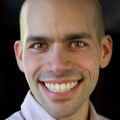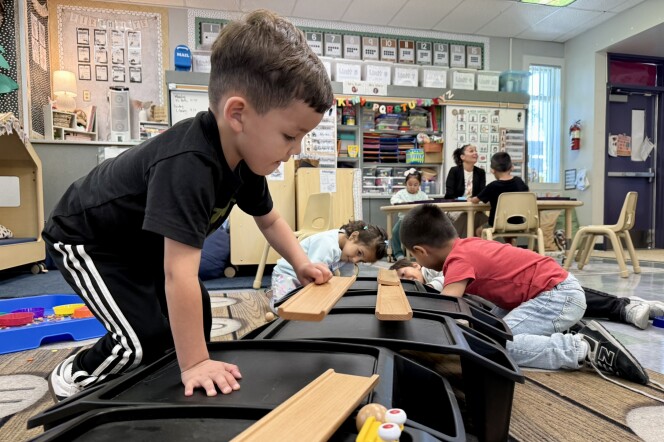With our free press under threat and federal funding for public media gone, your support matters more than ever. Help keep the LAist newsroom strong, become a monthly member or increase your support today.
A medieval object with Arabic and Hebrew writings shows the collaboration of its time
ROB SCHMITZ, HOST:
A stunning scientific instrument has been identified at a museum in Italy. Its engravings not only chart its journey across two continents during medieval times, they also highlight an era when Muslims, Jews and Christians furthered one another's intellectual achievements. Here's reporter Ari Daniel.
ARI DANIEL, BYLINE: This ancient discovery started in a very modern way - a Google search. Federica Gigante, a historian at the University of Cambridge, was looking for images for a lecture she was giving when a picture of a room from a museum in Verona, Italy, snagged her eye.
FEDERICA GIGANTE: And I noticed an object that looked really remarkably like an astrolabe.
DANIEL: An astrolabe - a 2D map of the universe in vogue several hundred years ago. This one consisted of a set of round brass plates, each one not quite the size of a small pizza.
GIGANTE: It's basically the world's earliest smartphone. With one simple calculation, you can tell the time, but you can also do all sorts of other things.
DANIEL: Like predicting sunrise and sunset, determining the position of the stars and even making a horoscope - this astrolabe was covered in Arabic engravings. Gigante deduced it was likely Andalusian, meaning it would have been created in southern Spain in medieval times. And by this point, Gigante just had to see this thing up close, so she made her way to Verona last July.
GIGANTE: It turned out to be so much more than I had hoped.
DANIEL: First, she saw indications it likely originated in the 11th century, a time when Spain was under Muslim rule and a center of scientific inquiry.
GIGANTE: Astrolabes were a fairly common tool for scientists besides being used in the community, probably in mosques, to calculate the time of prayer.
DANIEL: Gigante examined an extra brass plate added to the astrolabe at a later date, and it contained a pair of more southern latitudes.
GIGANTE: If I had to guess, they're probably Moroccan. So that means that someone, at a certain point of the object's life, either needed to travel to North Africa or lived there.
DANIEL: The room where Gigante was studying the astrolabe had these big windows. Sunlight streamed in, lighting up the brass.
GIGANTE: Suddenly, as I moved it around, I could notice some scratches that looked like really intentional markings. Actually, these scratches made up letters that weren't even Arabic, but they were Hebrew.
DANIEL: Inscribed by perhaps three different Jewish owners of the astrolabe, says Gigante. Additional markings suggested it likely then passed into the hands of a Latin or Italian speaker, ultimately joining the museum's collection in Verona.
GIGANTE: It is testimony of a period of shared existence between Muslim and Jews and Christians, who kept on building on each other's advancement.
DANIEL: Gigante published her discovery in the journal Nuncius. Margaret Gaida is a historian of science at Caltech who wasn't involved in the study.
MARGARET GAIDA: It's actually really exciting because there are very, very few astrolabes that have such obvious evidence of cross-cultural interaction.
DANIEL: Gaida says astrolabes like this one reveal a period when the interactions between Muslims, Jews and Christians were often constructive and defined by an exchange of ideas and scholarship.
GAIDA: The contributions of the Islamic world to the field of astronomy are immense and also of the Jewish astronomers working during this time. Many of those texts were then translated into Latin, eventually leading to Copernicus and the Scientific Revolution.
DANIEL: And astrolabes allow us to look deep into these different worlds and times as we peel back their many layers of history and travel and memory. For NPR News, I'm Ari Daniel.
(SOUNDBITE OF MINUTEMEN'S "COHESION") Transcript provided by NPR, Copyright NPR.








